Shangri-La Dialogue — more than US-China competition
US Defence Secretary Pete Hegseth’s approach at the Shangri-La Dialogue of talking “tanks, not tariffs” missed the point that the purpose of security is peace and prosperity, observes RSIS senior fellow Drew Thompson.
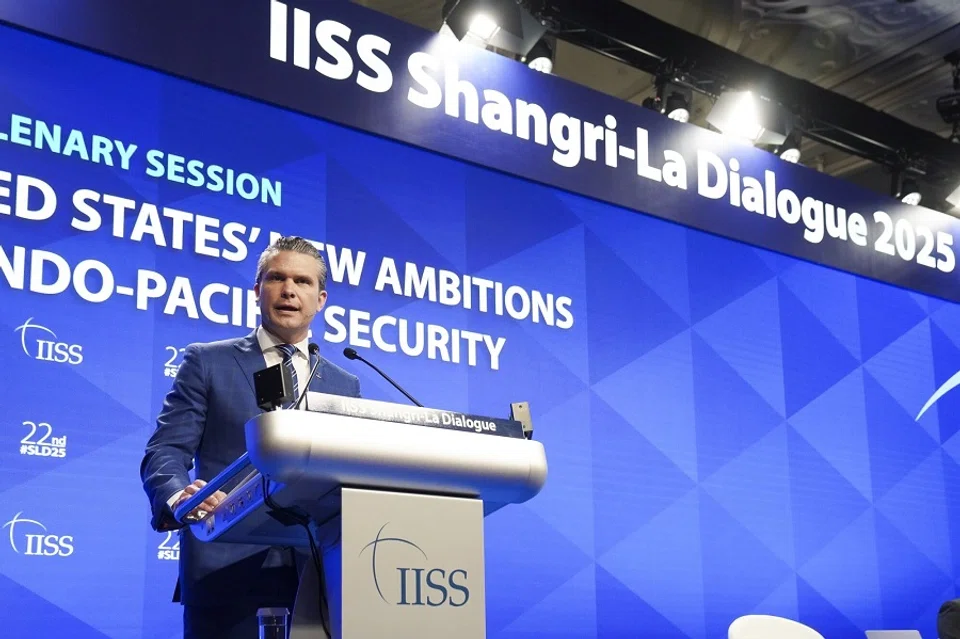
The annual Shangri-La Dialogue (SLD) is a testament to Singapore’s immense convening power and its ability to bring political and military leaders from around the world to meet and articulate their respective visions and strategies for ensuring peace and stability. This year’s dialogue was notable as Singapore’s newly appointed Minister for Defence Chan Chun-sing made his debut as host, US Secretary of Defense Pete Hegseth participated for the first time pronouncing the Trump administration’s approach to Asia, whereas China sent the lowest-level delegation in years.
While the SLD plays host to delegates from across the Indo-Pacific, Europe and beyond, US-China security competition is invariably a central issue garnering intense scrutiny. Focus naturally gravitated towards questions about China’s indifference and the substance of Secretary Hegseth’s speech as a means to understand US foreign policy in an era of “America First”.
The National Defence University is subordinate to the Academy of Military Sciences and is not a policy-making organ, making the choice of Rear Admiral Hu to represent China a particular signal.
Chinese representation at the SLD throughout the years
China’s delegation was led by Rear Admiral Hu Gangfeng, vice-president of the People’s Liberation Army (PLA) National Defence University. The choice of a one-star officer serving as vice-president of an academic institution is a significant downgrade from previous participants, which included Defence Minister General Wei Fenghe who joined in 2019 and 2022. The National Defence University is subordinate to the Academy of Military Sciences and is not a policy-making organ, making the choice of Rear Admiral Hu to represent China a particular signal.
Arguably, China’s defence minister is also a relatively low-level official, with no appreciable budget, commanding no troops. The defence minister’s primary function is external relations. The current holder of the title, Admiral Dong Jun, does not sit on the all-powerful Central Military Commission (CMC) chaired by the Communist Party’s General Secretary Xi Jinping, though some of his predecessors did.
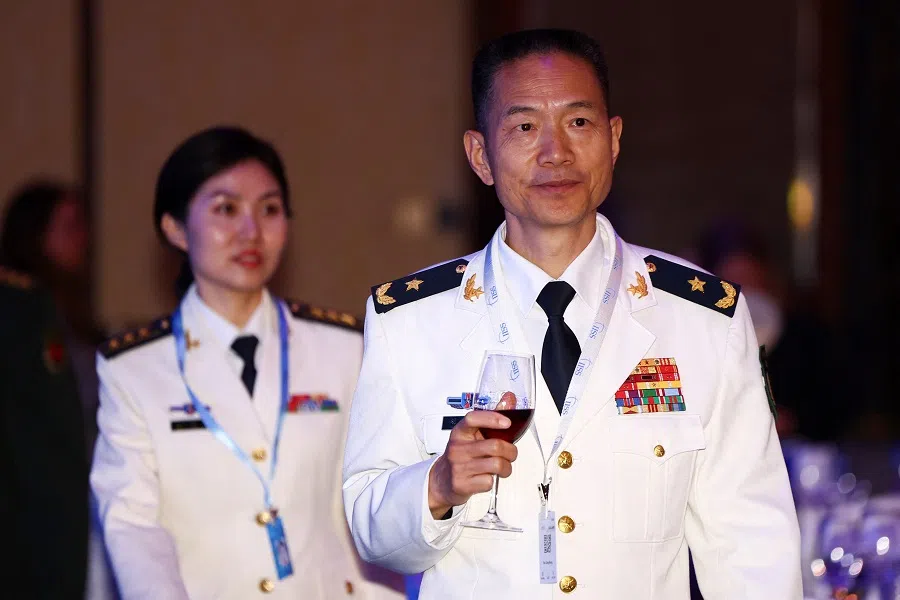
Prior to the reorganisation of the PLA beginning in 2016, China did send a relatively powerful and relevant officer to the SLD, the deputy chief of the general staff (affectionately labelled by the Pentagon with the acronym “DCOG”). General Qi Jianguo attended in 2013, General Wang Guanzhong in 2014 and Admiral Sun Jianguo in 2015 and 2016.
While some in Singapore might have been disappointed that the defence minister did not attend those years, the DCOG can be considered an upgrade in many ways because he was responsible for both military operations and intelligence. There was no position more appropriate or credible for engaging counterparts at the premier security dialogue in Asia, able to provide reassurance about Beijing’s intentions for the application of military power, as well as control a critical military engagement channel which is used to reduce the possibility of misperception or miscalculation.
The reform of the PLA beginning in 2016 saw the elimination of the general staff along with the other “general” departments whose functions were replaced by the formation of 13 offices and departments directly under the CMC, effectively consolidating Xi Jinping’s control over the PLA. In the wake of the PLA’s reform and reproportioning of responsibilities, it is perhaps unsurprising then that China’s delegate in 2017 and 2018 was the vice-president of the Academy of Military Sciences, Lieutenant General He Lei.
The SLD has never been a critical venue for US-China military engagement because its real value is in engaging and messaging to the region.
Why did China not send its defence minister?
As I discussed in a recent LinkedIn post, we do not know why Admiral Dong Jun did not come to the SLD this year. To know, one would have to ask the CMC, but they are not saying, leaving us to speculate. Some have asked if it is because Dong is in political trouble, but that does not ring true because he visited Europe earlier in May. Dong also recently held a high-profile meeting with Thailand’s chief of defence forces in Beijing. If he were under investigation it is unlikely he would travel and receive such high-level visitors. The PLA is not undergoing a major reform like it did starting in 2016, but power and personnel are certainly still being shuffled.
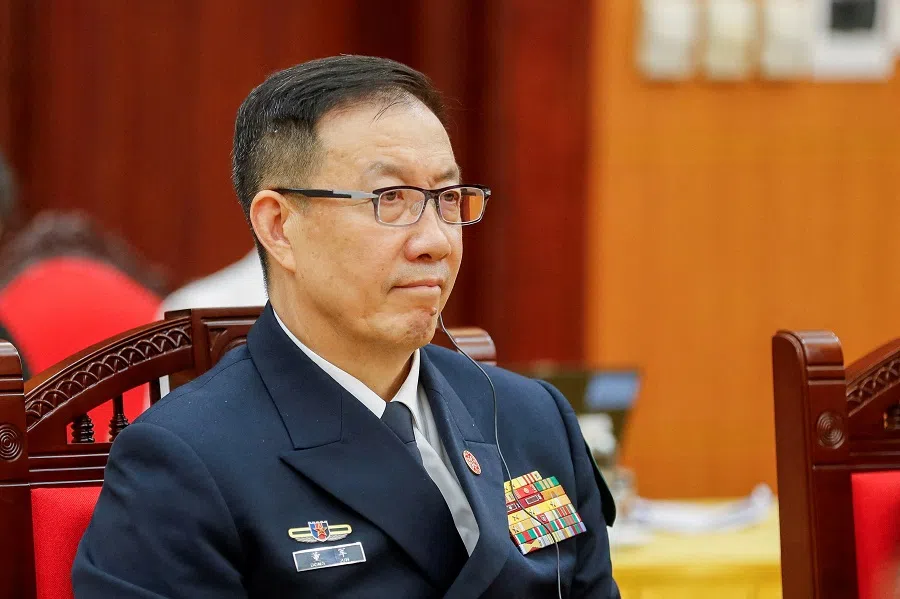
Some asked if Singapore has offended Beijing, but that does not seem likely, even though Xi Jinping and Li Qiang skipped Singapore on their recent Southeast Asia visits. Singapore’s relationship with China is friendly, constructive and mutually beneficial. The PLA Navy and Singapore Navy conducted a bilateral exercise in early May, indicating the military-to-military relationship is politically healthy. This is not a snub directed at Singapore.
Others have asked if this is a signal or a snub to the US, but I doubt that. The SLD has never been a critical venue for US-China military engagement because its real value is in engaging and messaging to the region. The PLA and US Department of Defense (DoD) have mechanisms for bilateral engagement from the secretary down to the pilots and ship-drivers who meet to discuss operational safety. Beijing knows how to engage Washington and does not need third-countries to facilitate. If political conditions are right, the PLA will meet with DoD.
Beijing always wants to control the narrative and discourse. SLD does not enable that. Xiangshan Forum does.
I surmise Admiral Dong Jun’s absence is a signal of frustration with the dialogue itself. Beijing never liked it, which is why they started the Xiangshan forum. When I was at DoD, my PLA counterpart once explained to me what they did not like. He said, “We don’t like being made out to be gladiators fighting one another for others’ entertainment. We want to deal with our differences bilaterally, in channels, not in public forums.” Furthermore, Beijing always wants to control the narrative and discourse. SLD does not enable that. Xiangshan Forum does.
Another possible factor this year is the large presence of Europeans at the SLD. French President Macron is the headline speaker this year. China’s support for Russia has hugely impacted its relationship with Europe, which finds it harder and harder to ignore evidence of China’s support for Russia’s war machine, making a public tongue-lashing certain. This makes for an awkward environment for a high-level PLA officer trying to manage and improve relations in Asia.
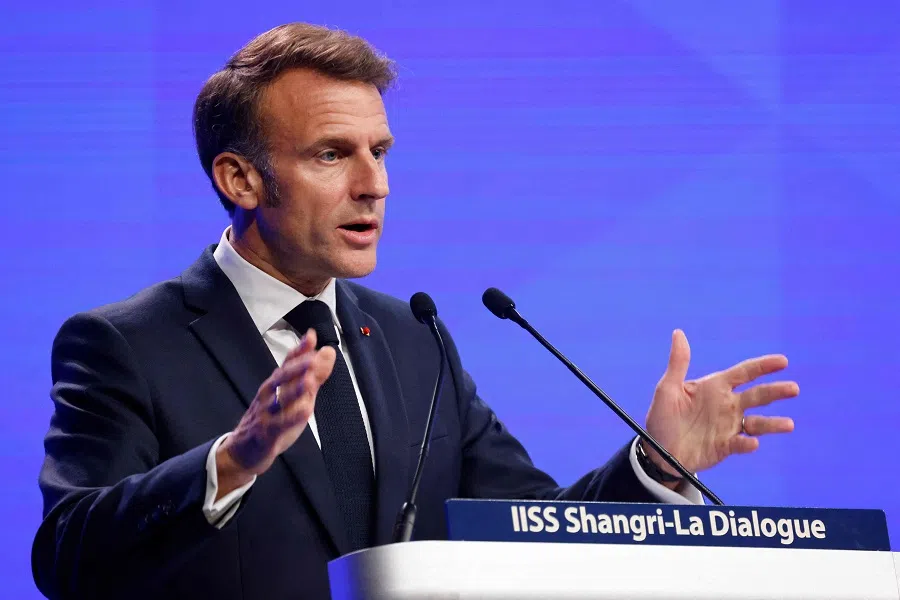
China was left complaining on the sidelines, unfortunately. China’s embassy and media accused Secretary Hegseth and other speakers of a “smear campaign against China”. Rear Admiral Hu Gangfeng stated, “We do not accept groundless accusations against China. Some of these claims are completely fabricated, some distort the truth, and some are outright cases of ‘the thief crying thief’.”
Singapore Minister for Defence Chan Chun-sing set a more positive and encouraging tone, affirming that China is very welcome to participate and is a beneficiary of the dialogue. “If China perceives that the world does not respect or understand it sufficiently, it is incumbent upon the country to use every opportunity possible, including the Shangri-La Dialogue, to get its voice heard and make clear its stance.”
Hegseth left little doubt about the intensity of US-China security competition and Washington’s commitment to using hard power to deter China and reassure partners...
US Defence Secretary Pete Hegseth’s messages
Secretary Hegseth delivered remarks intended to overcome anxieties about the Trump administration. To that end, his speech and responses to questions delivered both hits and misses to the diverse and in many cases sceptical audience.
He scored points by reassuring allies and partners in the Indo-Pacific that it is Washington’s priority theatre promising to conduct more joint exercises, more capability deployments and investments in military infrastructure in the region. The Trump administration’s message that it is not ideological and respects other country’s systems and choices was particularly welcomed.
The messages of commitment to working with partners where “shared interests align” and that “America First certainly does not mean America alone”, was punctuated with the assurances, “we don’t seek conflict, we won’t be pushed out… we will not let our allies and partners be subordinated and intimidated”. The call to increase defence spending further underscores the administration’s preference and commitment to work with capable partners, “not dependents”.
Hegseth’s messages about China were considerably sharper than those delivered by Secretary Lloyd Austin throughout the Biden administration. Austin’s assessment that a conflict with China was neither inevitable or imminent was replaced by Hegseth’s assertion that “the threat China poses is real, and it could be imminent”.
Hegseth’s reassurance was convoluted, however, stating that the US does not seek conflict with “Communist China”, and that “President Trump and the American people have immense respect for the Chinese people and their civilization”. He asserted that China was not only using its military to harass Taiwan, but also rapidly modernising its military, “including huge investments in nuclear weapons, hypersonics and amphibious assault capabilities”.
President Trump’s tariffs threaten to undermine the region’s economic well-being, which is the foundation for its political and social stability.
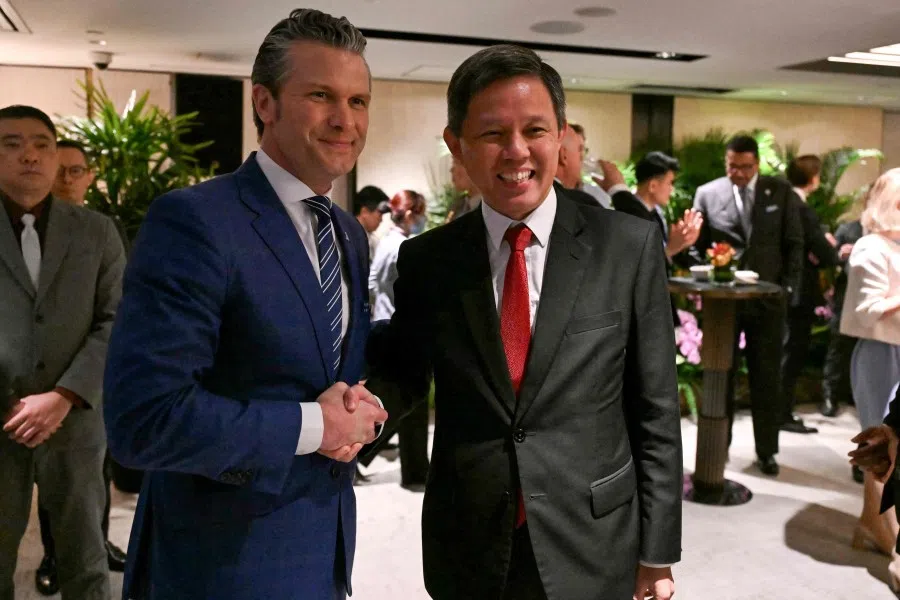
He concluded, “It has to be clear to all that Beijing is credibly preparing to potentially use military force to alter the balance of power in the Indo-Pacific.” Hegseth left little doubt about the intensity of US-China security competition and Washington’s commitment to using hard power to deter China and reassure partners, “We are prepared to do what the Department of Defense does best — fight and win, decisively.”
Missing the mark on trade and economic development
Hegseth’s remarks missed a major mark, however — trade and economic development. Stating that he was in Singapore to talk “tanks, not tariffs” missed the point that the purpose of security is peace and prosperity. President Trump’s tariffs threaten to undermine the region’s economic well-being, which is the foundation for its political and social stability. Economic development is the central political issue, particularly for the developing economies of Southeast Asia, as well as the developed democracies in Northeast Asia. Malaysian Prime Minister and ASEAN chair Anwar Ibrahim captured the sentiment succinctly when he said, “Trade is not a soft power indulgence. It is part of our strategic architecture.”
The absence of a high-level delegate from China may have deprived spectators of a hoped-for US-China showdown in suits and dress uniforms, but the real story of the SLD is the presence of delegates from 47 countries around the world convening to exchange views, exercise their agency, further their interests and contemplate their own contributions and commitments to preserving peace and security.
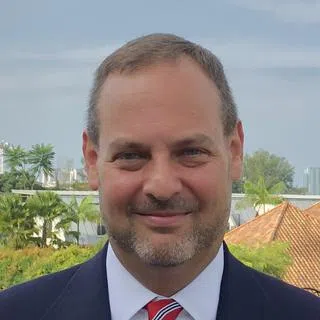


![[Big read] When the Arctic opens, what happens to Singapore?](https://cassette.sphdigital.com.sg/image/thinkchina/da65edebca34645c711c55e83e9877109b3c53847ebb1305573974651df1d13a)
![[Video] George Yeo: America’s deep pain — and why China won’t colonise](https://cassette.sphdigital.com.sg/image/thinkchina/15083e45d96c12390bdea6af2daf19fd9fcd875aa44a0f92796f34e3dad561cc)
